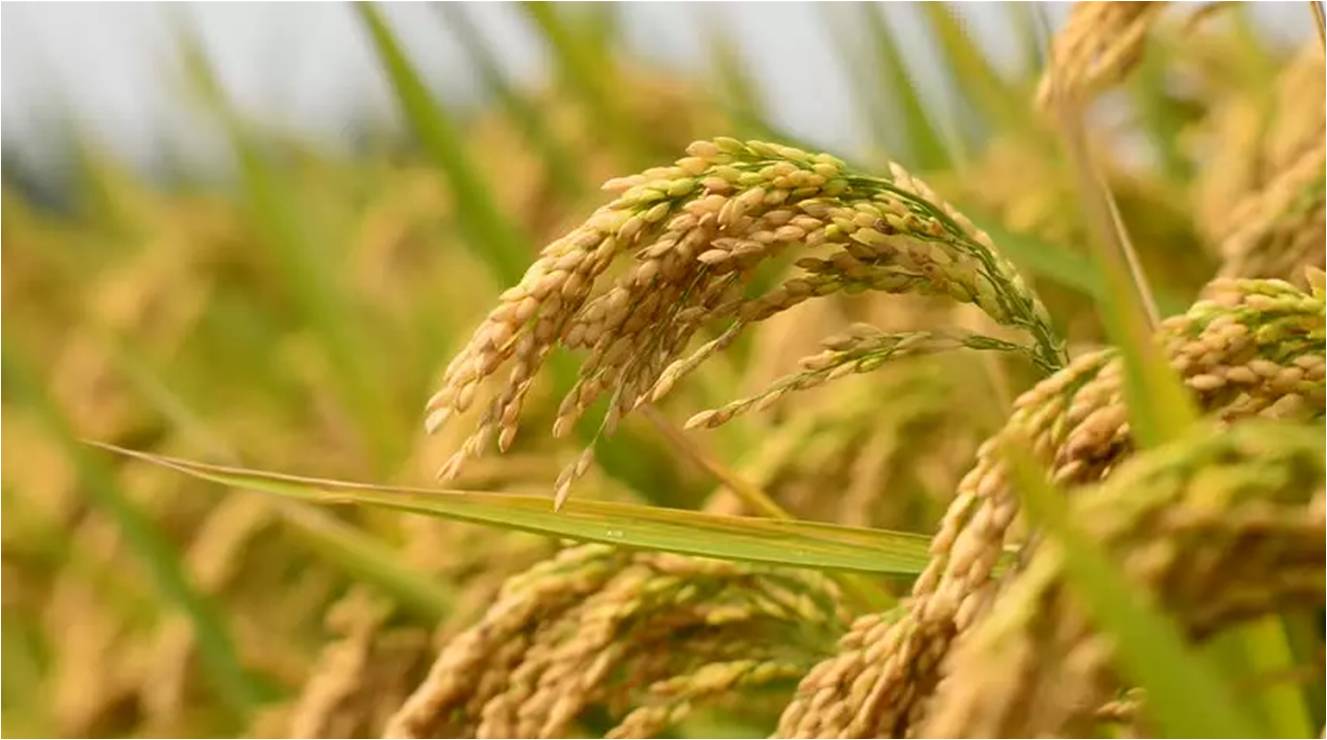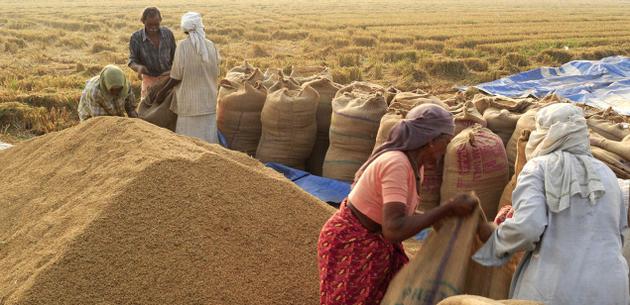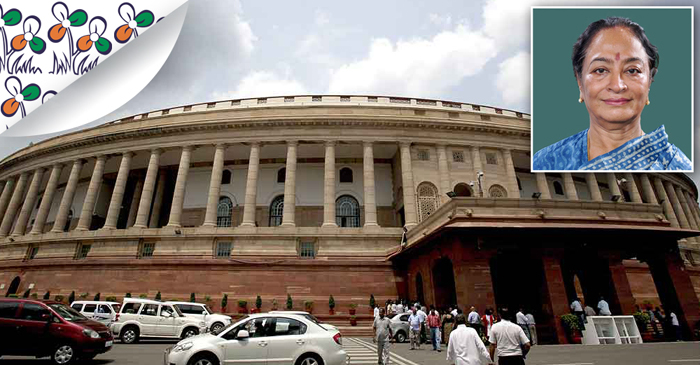There is another good news for the State Government: according to a Union Food Processing Industries Ministry report, Bengal is ahead of its neighbours in foodgrain procurement and foodgrain storage infrastructure.
As per the report, Bengal has a lot of potential in the field of paddy procurement. Hence, while the procurement during the 2016-17 kharif season was 40 lakh metric tonnes, the target set for the 2017-18 season by the State Government is 52 lakh metric tonnes.
After the Trinamool Congress Government came to power in 2011, the state has stopped procuring foodgrains from neighbouring states for distribution through the public distribution system, that is, ration shops, which is a big achievement.
On the other hand, Bengal is selling foodgrains to its neighbouring states for distribution through the PDS. Jharkhand, for example, is buying 5 lakh metric tonnes from Bengal. Not just that, the Centre now wants Bengal to supply to Tamil Nadu and Kerala too.
Additionally, as per the report, the Centre now wants Bengal to join the elite list of states which supply foodgrains to other states to make up for their shortfall. Hence, Bengal would soon join states like Andhra Pradesh, Punjab, Chhattisgarh, Uttar Pradesh and Haryana.
সরকারি উদ্যোগে ধান সংগ্রহে প্রতিবেশী রাজ্যগুলির থেকে অনেক এগিয়ে বাংলা
প্রতিবেশী রাজ্যগুলির থেকে সরকারি উদ্যোগে ধান সংগ্রহের পরিকাঠামো ও পরিমাণের নিরিখে এগিয়ে পশ্চিমবঙ্গ। কেন্দ্রীয় খাদ্য মন্ত্রকের ডাকা বৈঠকের রিপোর্ট থেকেই এটা পরিষ্কার।
চলতি খরিফ মরশুম শুরু হওয়ার পরেই কেন্দ্রীয় খাদ্যমন্ত্রক পশ্চিমবঙ্গ, বিহার, অসম, ঝাড়খণ্ড এবং উত্তরপ্রদেশে ধান সংগ্রহের প্রস্তুতি নিয়ে বিশেষ বৈঠক ডেকেছিল। খাদ্যমন্ত্রকের যুগ্মসচিবের সভাপতিত্বে হওয়া এই বৈঠকের বিস্তারিত রিপোর্টে দেখা যাচ্ছে, চাল সংগ্রহের ক্ষেত্রে পশ্চিমবঙ্গের অবস্থা সব থেকে ভালো।
পশ্চিমবঙ্গ সম্পর্কে বলা হয়েছে, ধান সংগ্রহে এ রাজ্যে বিরাট সম্ভাবনা রয়েছে। তাই ২০১৬-১৭ খরিফ মরশুমে ৪০ লক্ষ টন ধান সংগ্রহ হলেও, ২০১৭-১৮ মরশুমে তা আরও বাড়ানোর সুযোগ রয়েছে। প্রসঙ্গত, চলতি খরিফ মরশুমে রাজ্য সরকার ৫২ লক্ষ টন ধান সংগ্রহের লক্ষ্যামাত্রা ধার্য করেছে। ফেব্রুয়ারি মাসের শুরুতে সরকারি উদ্যোগে ধান সংগ্রহ ১৬ লক্ষ টন ছাড়িয়ে গিয়েছে
কেন্দ্রের রিপোর্টে দেখা যাচ্ছে, অন্তত ৩৭ লক্ষ টন ধান ওই রাজ্যকে কিনতে বলা হয়েছে। প্রসঙ্গত, ২০১১ সালে তৃণমূল সরকার ক্ষমতায় আসার পর থেকে গত প্রায় পাঁচ বছর ধরে পশ্চিমবঙ্গে রেশনে ভিন রাজ্যের চাল সরবরাহ বন্ধ হয়ে গিয়েছে।
উল্লেখ্য, ঝাড়খণ্ড সরকার ওই রাজ্যের রেশনে সরবরাহ করার জন্য পশ্চিমবঙ্গ থেকে চাল নিতে আগ্রহী। ঝাড়খণ্ড, তামিলনাড়ু ও কেরলে চাল সরবরাহ করুক এই রাজ্য, কেন্দ্র এটাই চাইছে।
Source: Anandabazar Patrika



